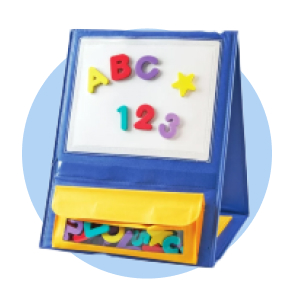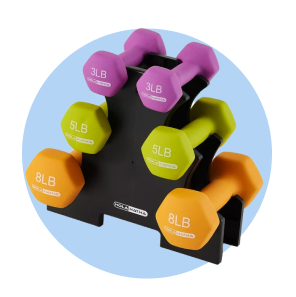
Small Business Financial Tips: 5 Ways to Save More and Stress Less
Staying organized and compliant
Running a small business means you may spend the morning researching new product ideas and come back from lunch to design an email marketing plan. But if you don’t find time to focus on your financials, you’re neglecting the keystone of your business.
Good financial habits are critical to your success. These small business financial tips will help you monitor your finances, maintain a healthy cash flow and comply with relevant regulations and laws.
Financial tips for small business owners
1. Track your cash flow
One of the most basic (and important) small business financial tips is understanding your cash flow. Problems with cash flow—the movement of money in and out of your business—are the main cause of 82% of small business failures.1 Bills, payroll and other expenses send money out, while paid invoices bring it back in.
Positive cash flow indicates you’re gaining liquid assets over time, which you can reinvest to grow your business or retain to guard against unexpected challenges. Negative cash flow is a warning your business isn’t sustaining itself and may be vulnerable.
You should be able to answer the following key questions:
- How much liquidity do you have on hand?
- How much are you spending to maintain your business, and when do those payments take place?
- What are your lynchpin income sources?
- What is the relationship between your operational costs, expenses and income?
2. Establish a billing strategy
Running a small business means constantly sending out invoices and processing payments as they come in. If those payments don’t arrive in time, your business could run out of cash. To avoid that, you’ll need to set standards around billing and clearly outline those terms to your customers.
Also, explore switching to electronic funds transfer (EFT) or Automated Clearing House (ACH) payments to make payments faster and more reliable than paper checks.

Tax tips for small businesses
3. Choose an accounting method
Cash and accrual are two common business accounting methods. Cash accounting is the simpler of the two. You record revenue when the money comes in and expenses when payments go out.
The downside to cash accounting is that it provides a limited view of income and expenses. If you’ve got a big invoice coming but the funds haven’t hit your account yet, it won’t appear on your books. That makes planning difficult.
Accrual accounting puts transactions on the books as soon as they’re made, and tracks revenue and expenses in real time. It’s more complex and time-consuming to maintain than cash accounting, but it provides a more detailed and timely picture of your business’s finances.
Accrual accounting has the added benefit of being the preferred method among lenders and creditors. Following generally accepted accounting principles (GAAP),2 which includes accrual accounting, makes the lending process easier.
4. Create a tax payment plan
There are plenty of small business financial tips that can help you save on your taxes, but the first step to saving is making a payment plan. If you prepare for tax season, either by setting aside money or arranging for a line of credit, you’ll be better positioned to avoid cash flow disruptions.
Many businesses opt to pay estimated taxes on a quarterly or monthly basis because that lets them spread out the payments.
If business was slow last year, use that to your advantage by paying a smaller amount in estimated taxes. Merrill recommends paying at least 90% of the tax for the current year or 100% of the tax shown on the prior year’s return—whichever is smaller—to avoid penalties.3 When the IRS tax deadline for the current year rolls around, you can pay down the difference.
Of course, one of the simplest small business financial tips is to hire an accounting professional to help you navigate tax season.
5. Maintain reporting compliance
If your business is privately owned, you don’t need to report any financial information outside of paying your taxes. However, with a few exceptions,4 all U.S. businesses must report information about their beneficial owners—that is, the people who own and control the company—to the Financial Crimes Enforcement Network (FinCEN).5
Meeting state-level requirements is where reporting can get tricky. In general, businesses must submit the following to their state governments:
- An annual report or biennial statement, plus a fee for filing
- Initial reports and fees around incorporation
- Articles of Amendment for company changes, such as a new address or new name
Each state has its reporting requirements, so do your research.
Save more with Walmart Business+
Looking for more ways to save? Whether you’re furnishing your first office or restocking the breakroom, you can find what you need with Walmart Business+. Orders ship free,6 and you earn you 2% in Walmart Business Rewards on orders $250+.7 Plus, Spend Analytics can help you keep your budget in the black. Start your Walmart Business+ membership today!


Limited-time offer
Unlock your special promo code
Stay informed on Walmart Business news & get $20 off a $100 purchase!1
1Minimum order of $100. Promo code can be used one time & may not be combined with other offers. Offer not transferable & void where prohibited by law. Customer responsible for all applicable taxes. Offer expires 12/31/2025 at 11:59pm PT. Further restrictions apply. See terms at checkout for details. Promo code offers available in limited quantities. While supplies last.
Sources:
1. Closing Strong: Year-End Cash Flow Strategies, Monitoring, and the Role of Spend Management Platforms, US Bank
2. Generally Accepted Accounting Principles (GAAP): Definition, Standards and Rules, Investopedia
3. 8 tax tips for small business owners, Merrill
4. Beneficial Ownership Information Reporting, FinCEN
5. Beneficial Ownership Information, FinCEN
6. Excludes Marketplace & oversized items, location & freight surcharges.
7. Exclusions apply. See full terms for details.
Exciting news awaits
Hear firsthand about new products, features & promotions.
By clicking submit, you agree to receive emails about Walmart Business and acknowledge you have read and agreed to our Terms of use and Privacy Policy.










